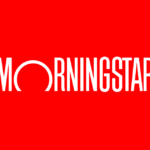Shares of Klarna surged by 30% during its trading debut on the New York Stock Exchange, starting at $52 on Wednesday after pricing its initial public offering at $40 the previous day. This strategic pricing allowed Klarna to raise a notable $1.38 billion while achieving a market valuation of around $15 billion.
The Swedish buy now, pay later (BNPL) fintech, which has grown significantly since launching in the U.S. in 2019, has now established the U.S. as its largest market. Initially slated for a spring IPO, the company postponed its plans due to uncertainties surrounding tariffs, making its market entrance particularly anticipated.
Klarna’s debut marks the beginning of a promising new season for IPOs on Wall Street, which could see several high-profile firms going public this week. Among those are Figure Technology, a stablecoin firm planning to list soon, and the crypto exchange Gemini, founded by the Winklevoss twins, set for its own market introduction soon after.
Speaking about the IPO, Klarna’s Chief Financial Officer, Niclas Neglén, emphasized the event as an opportunity for new shareholders, including the 111 million consumers that Klarna serves, to engage with the company’s mission of revolutionizing financial services.
Samuel Kerr, head of equity capital markets at Mergermarket, noted that the $15 billion valuation exceeded initial expectations, reflecting a trend where companies set conservative price ranges to build investor enthusiasm, hoping for a successful reception in the market.
Founded in 2005, Klarna has quickly become a major player in the BNPL space, with Walmart recently selecting it as its exclusive provider of BNPL services, further enhancing Klarna’s presence in the American market. The company is also exploring a future as a digital bank, a concept that some analysts view as a critical test of investor confidence during this IPO.
This influx of IPOs comes after a period of market turbulence in April sparked by political uncertainties, which stalled a wave of expected companies going public. As the fall IPO calendar gains traction, apprehensions about economic volatility and trade tensions linger, but the hope is that a successful Klarna offering could inspire other fintech firms to follow suit.
Investment director at AJ Bell, Russ Mould, pointed out that a robust aftermarket performance could encourage more fintech companies to consider public offerings. However, he cautioned that the excitement generated by one successful deal could lead to a rash of less favorable offerings.
In the wake of the IPO, some of Klarna’s long-term investors, including the prominent venture capital firm Sequoia Capital, are likely to take profits, selling part of their stake. In contrast, co-founder and CEO Sebastian Siemiatkowski, who holds approximately 7% of the company, opted not to sell any shares during the IPO. Describing the process, he likened it to a wedding—extensive planning culminating in a significant celebration, with the understanding that the journey continues beyond the initial event.







